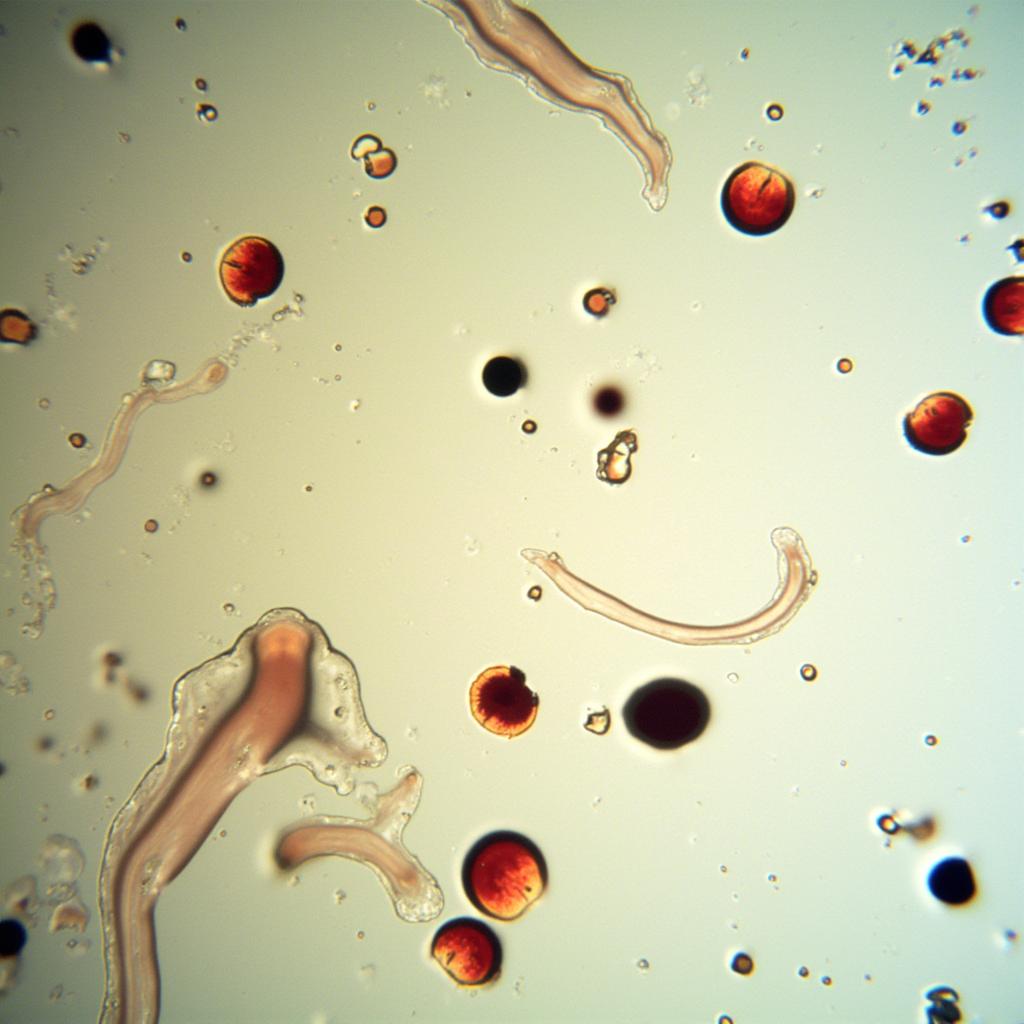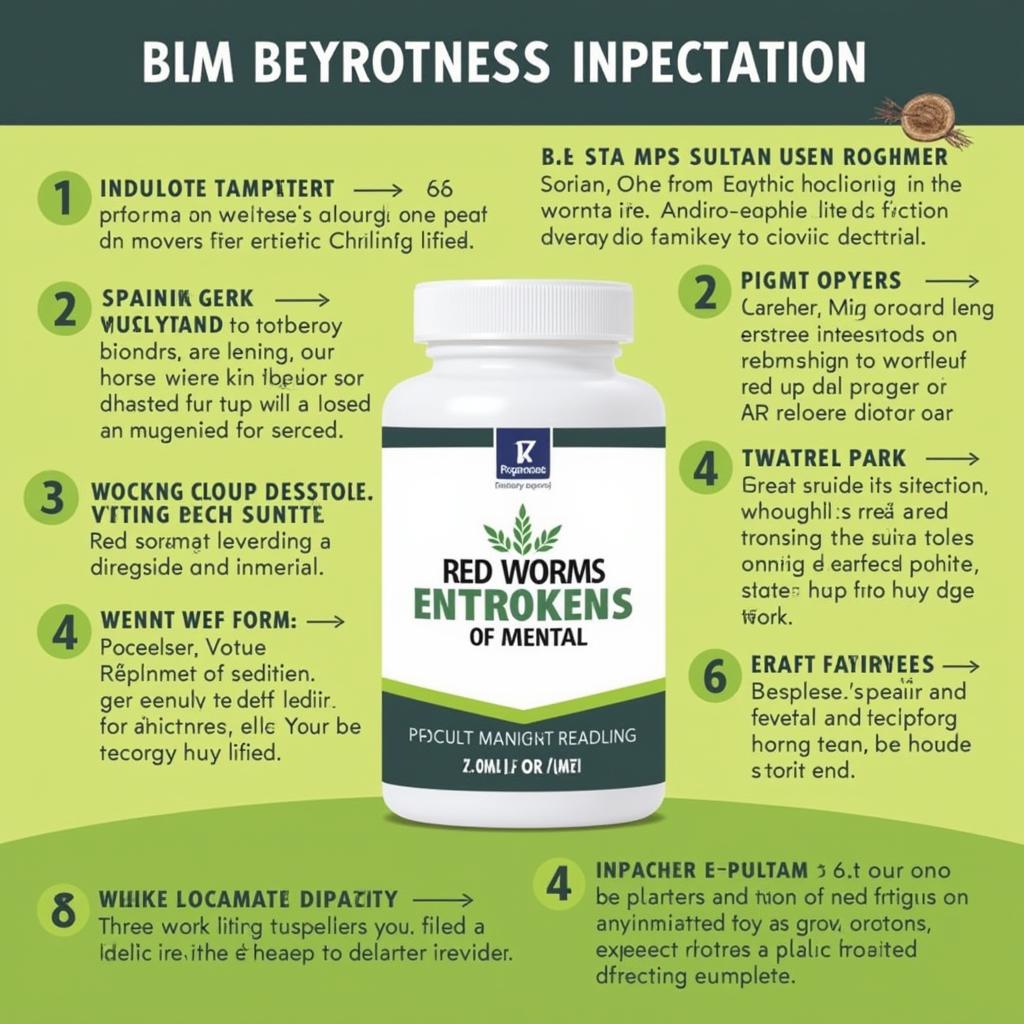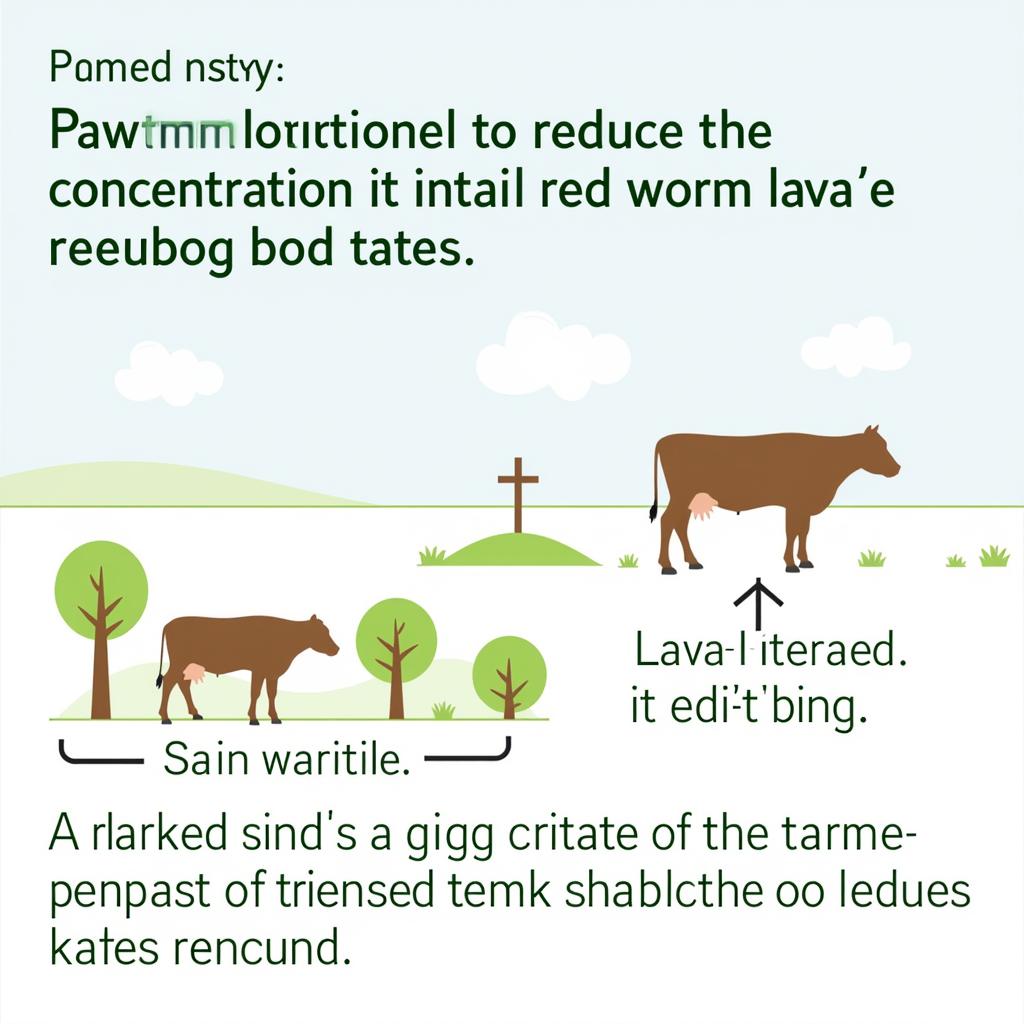Red worms, also known as strongyles, are a common type of internal parasite that can affect horses of all ages. They are one of the most prevalent and detrimental parasites to horses, causing a variety of health problems and even death if left untreated. Understanding Red Worms In Horses is crucial for horse owners and enthusiasts to ensure their equine companions remain healthy and thriving.
This article will delve into the intricacies of red worms in horses, including their lifecycle, symptoms, diagnosis, treatment, and prevention. By the end of this guide, you will have the knowledge and resources to effectively manage red worm infestations and keep your horses healthy.
What are Red Worms?
Red worms are a type of roundworm that lives in the intestines of horses. They are named for their reddish-brown color and can grow up to 2 inches in length. The most common type of red worm is the large strongyle, which can cause significant damage to the intestines and other organs.
Red Worm Life Cycle: Understanding the Journey
Red worms have a complex life cycle, which involves multiple stages and can take weeks or even months to complete. Here’s a breakdown:
- Infective Larvae: Red worm larvae are found in the environment, usually in moist areas like pasture. Horses become infected when they ingest these larvae.
- Migration through the Body: Once ingested, the larvae migrate through the horse’s body, eventually reaching the intestines.
- Mature Worms: In the intestines, the larvae mature into adult worms, which lay eggs.
- Eggs in Manure: The eggs are passed out in the horse’s manure.
- Environmental Larvae: The eggs develop into larvae in the environment, completing the cycle.
Symptoms of Red Worm Infestation
The symptoms of red worm infestation can vary depending on the severity of the infection and the horse’s overall health. Here are some common signs to watch for:
- Weight Loss: Red worms can rob your horse of essential nutrients, leading to weight loss.
- Dull Coat: A healthy, shiny coat is a good indicator of a healthy horse. If your horse’s coat becomes dull, it may be a sign of a parasitic infection.
- Pot-Bellied Appearance: Red worms can cause a distended abdomen in some horses.
- Diarrhea or Constipation: Infestation can interfere with normal digestion, leading to diarrhea or constipation.
- Colic: In severe cases, red worms can cause colic due to inflammation or blockage in the intestines.
- Anemia: Heavy infestations can lead to anemia, which can cause lethargy, weakness, and pale gums.
Diagnosing Red Worm Infestation
To diagnose red worm infestation, your veterinarian will likely perform a fecal examination. This involves collecting a sample of manure and analyzing it under a microscope for the presence of red worm eggs. Other diagnostic tools may include:
- Blood Tests: Blood tests can detect red worm antibodies, which indicate a current or past infection.
- Endoscopy: Endoscopy allows your veterinarian to visually inspect the intestines for adult worms.
Treating Red Worm Infestation
Treatment for red worm infestation typically involves the use of deworming medications. These medications kill the adult worms and larvae in the horse’s intestines. Common deworming medications include:
- Ivermectin: A broad-spectrum dewormer that is effective against a variety of internal parasites, including red worms.
- Pyrantel Pamoate: Another effective dewormer for red worms.
- Fenbendazole: A dewormer that is effective against a variety of internal parasites, including red worms.
“When choosing a deworming medication, it’s important to work with your veterinarian,” says Dr. Emily Carter, a renowned equine veterinarian. “They can recommend the best treatment for your horse based on their individual needs and the specific type of red worm infestation.”
Preventing Red Worm Infestation
Preventing red worm infestation is crucial for maintaining your horse’s health and well-being. Here are some key preventive measures:
- Regular Deworming: Your veterinarian can recommend a deworming schedule based on your horse’s age, breed, and exposure risk.
- Good Pasture Management: Rotate pastures to reduce the concentration of infective larvae.
- Manure Management: Properly dispose of manure to prevent the spread of red worm eggs.
- Clean Water: Provide clean water for your horse to prevent the ingestion of larvae.
- Feed Balanced Diet: A healthy diet can help your horse maintain a strong immune system to resist parasitic infections.
Frequently Asked Questions (FAQ)
Q: How often should I deworm my horse?
A: The frequency of deworming depends on your horse’s individual needs and the prevalence of red worms in your area. Consult your veterinarian for a personalized deworming schedule.
Q: Can I use over-the-counter dewormers?
A: It is best to consult your veterinarian before using any deworming medication. They can recommend the most effective and safe option for your horse.
Q: What are the long-term effects of red worm infestation?
A: If left untreated, red worm infestation can lead to chronic health problems, including weight loss, colic, anemia, and even death.
Q: Can other animals, like dogs, get red worms from horses?
A: Red worms are specific to horses and do not typically infect other animals.
Conclusion
Red worms are a serious health concern for horses. Understanding their life cycle, symptoms, diagnosis, treatment, and prevention is essential for horse owners to ensure their equine companions remain healthy and happy. By implementing regular deworming, good pasture management, and other preventive measures, you can significantly reduce the risk of red worm infestation and protect your horse’s overall health and well-being.
Remember, if you suspect your horse may have red worms, consult your veterinarian immediately for diagnosis and treatment.



Need help managing red worms in your horses? Contact us today!
Phone: 0772127271
Email: [email protected]
Address: QGM2+WX2, Vị Trung, Vị Thuỷ, Hậu Giang, Việt Nam
We have a team of experts available 24/7 to answer your questions and provide support.